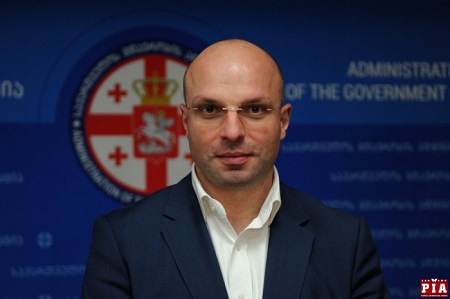Current head of gov’t administration on verge of becoming new chief prosecutor

The current head of the Government Administration of Georgia, Shalva Tadumadze, has been selected for the chief prosecutor’s post by a special council created in 2015 to choose one candidate for the post.
The prosecutorial council will now offer Tadumadze’s candidacy to the government for approval and if he is approved the parliament will make a final decision on the matter.
Tadumadze was among three candidates selected by the minister of justice for the role, after the resignation of former chief prosecutor Irakli Shotadze on May 31.
Before the vote in the prosecutorial council, one of the three candidates, former lawmaker from the Free Democrats Party Shalva Shavgulidze, withdrew his candidacy, stating that he did not trust the legitimacy of the process.
Tadumadze has served in the government of Georgia since 2012, when the Georgian Dream party defeated the nine-year rule of the United National Movement government.
- The changes made to the law in 2015, under the Georgian Dream leadership, read that the chief prosecutor must be elected, not appointed.
- Shotadze was the first chief prosecutor of Georgia to be elected by the parliament of Georgia.
- After the selection of the three candidates, the prosecutorial council - also formed in the 2015 bill and chaired by the minister of justice - nominates one individual for the position.
- Eight members of the council are prosecutors elected by the conference of prosecutors, which was also a new structure suggested in the bill.
- Members of parliament (MPs) have two seats; one from the majority and one from the opposition, while one seat is held by a civil society representative and another from an academic. Two seats are occupied by judges of the High Council of Justice.
- The council must approve one candidate by vote; the successful nominee must gain two thirds of the council’s support.
- If this fails, the justice minister will be required to name three other candidates.
 Tweet
Tweet  Share
Share